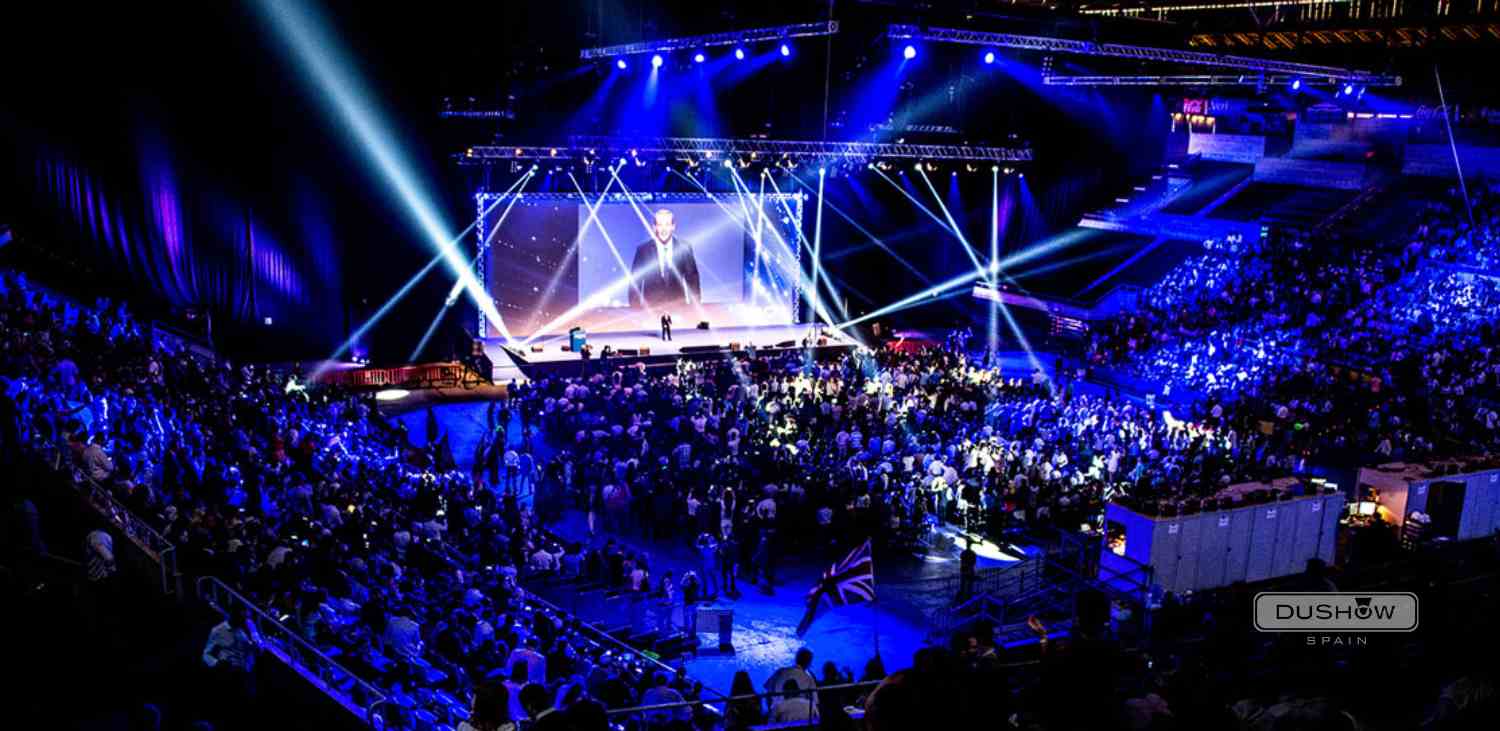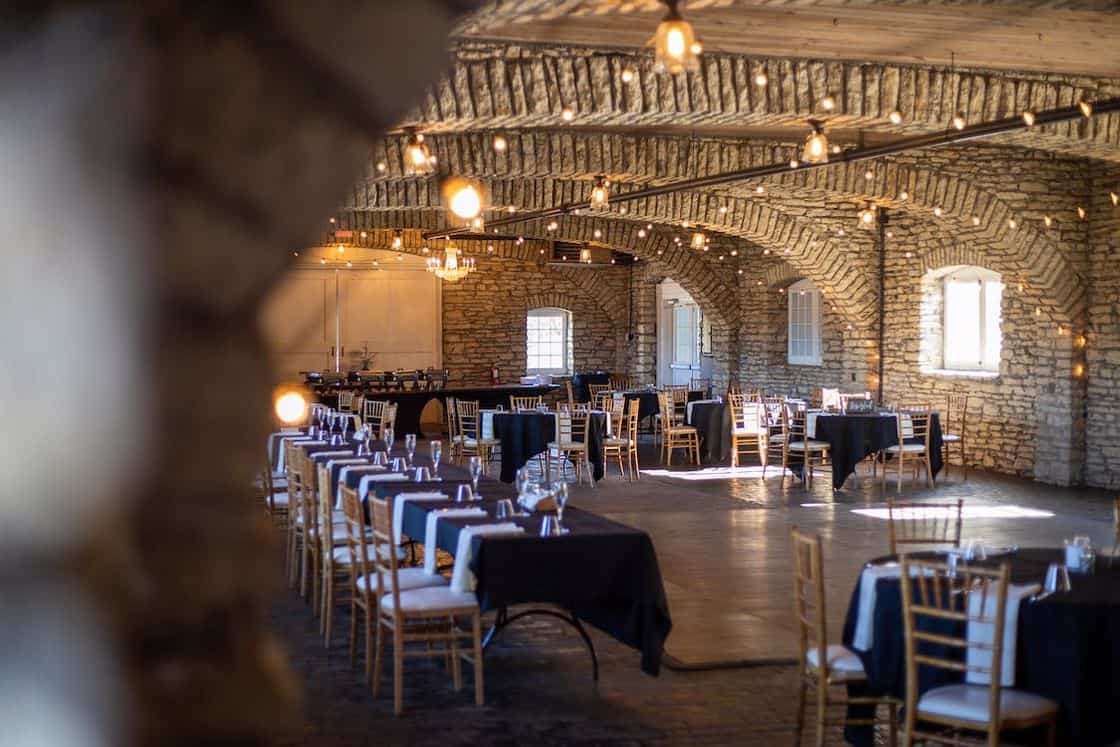Comprehending Event Production: Why It Is Very Important for Effective Celebrations
Event production plays a critical role fit successful celebrations. It entails mindful preparation, sychronisation, and implementation to ensure every detail aligns with the event's vision. This process not only boosts attendee experiences however additionally assists in purposeful links among participants. Comprehending the intricacies of event production can significantly influence the total end result. What are the crucial elements that add to a successful event, and just how can they be successfully handled?
The Role of Event Production in Producing Memorable Experiences
Several variables add to the success of an event, event production plays an essential duty in crafting remarkable experiences. This complex process includes different aspects, consisting of planning, logistics, and execution. Efficient event production assurances that every information lines up with the general vision, producing a smooth flow that mesmerizes guests. By collaborating timelines, handling sources, and overseeing technical aspects, event manufacturers develop a foundation for impactful experiences.Moreover, they curate environments that reverberate with the target audience, enhancing involvement and psychological link. From choosing appropriate locations to integrating innovative modern technology, the options made during production substantially influence exactly how guests perceive and remember the event. By focusing on quality and interest to information, event production changes regular celebrations into remarkable moments, leaving long-term perceptions. Eventually, the skilled orchestration of these components defines the essence of an event, showcasing the significance of specialist event production in attaining outstanding results.
Key Elements of Successful Event Production
Efficient event production depends upon several key components that ensure success. Planning and control develop a strong structure, while technical setup demands resolve logistical needs. Furthermore, implementing audience interaction methods boosts the overall experience, making the event unforgettable.
Preparation and Coordination
Planning and control serve as the foundation of effective event production, making certain that every information lines up perfectly to produce a remarkable experience. Effective planning entails establishing a clear vision and purposes, while control entails the precise company of logistics, timetables, and resources. A distinct timeline is crucial, guiding all stakeholders with important landmarks and jobs. Interaction plays an essential duty, cultivating collaboration among staff member, vendors, and venue staff. Regular meetings and updates aid to resolve difficulties immediately, making sure that everyone remains aligned with the event goals. Ultimately, a structured approach to planning and control not just boosts performance yet likewise substantially adds to the total success and pleasure of the event for guests and organizers alike.
Technical Setup Requirements
An effective event depends heavily on its technological setup requirements, which incorporate essential parts such as audio-visual tools, illumination, staging, and connectivity. Audio-visual tools consists of microphones, speakers, and projectors, ensuring that discussions and efficiencies are delivered clearly. Correct lighting enhances the ambiance and highlights essential areas, while presenting supplies the essential system for audio speakers and entertainers. Connectivity, consisting of Wi-Fi and electric access, is vital for seamless communication and technology assimilation. Each part must be meticulously prepared and executed, customized to the event's certain needs. Insufficient technological setups can cause interruptions, negatively affecting the total experience for attendees, highlighting the importance of comprehensive prep work and attention to detail in event production.
Target Market Interaction Techniques

The Significance of Planning and Sychronisation
Planning and sychronisation are critical to the success of any event production. Effective timeline management, source allocation techniques, and team communication characteristics play necessary roles in ensuring that all elements integrated flawlessly. Without an organized technique to these aspects, events risk encountering hold-ups, budget overruns, and miscommunication amongst staff member.
Efficient Timeline Management


While effective event production often depends upon creativity and implementation, reliable timeline management stays a crucial element that can not be overlooked. A well-structured timeline offers as the foundation of any type of event, making sure that each phase is performed in a timely fashion. It permits the coordination of various jobs, from venue arrangement to visitor arrivals, while protecting against possible traffic jams. By clearly outlining deadlines and responsibilities, event planners can keep focus and adapt to unforeseen obstacles. Furthermore, a carefully crafted timeline promotes communication amongst staff member, advertising responsibility and partnership. Ultimately, reliable timeline administration not only boosts operational efficiency yet likewise adds considerably to the general success and smooth execution of the event, leaving participants with an unforgettable experience.
Source Allowance Techniques
Reliable resource allocation approaches are critical for the successful execution of any kind of event. Correct preparation allows event coordinators to determine and distribute resources, such as financial resources, employees, and products, in a manner that optimizes performance. By examining the details demands of each facet of the event, coordinators can prioritize jobs and allocate sources accordingly. Control amongst various divisions guarantees that all elements, from accommodating audiovisual needs, are properly supported. This calculated method not only minimizes waste but also improves the general experience for participants. Additionally, expecting possible challenges and having backup strategies in position permits smoother operations. Eventually, efficient source allocation contributes substantially to attaining event goals and guaranteeing a memorable celebration.
Group Communication Characteristics
How can seamless communication among employee transform the event production process? Reliable interaction is essential for coordinating jobs, sharing updates, and addressing challenges in real-time. When employee involve in open discussion, they can swiftly determine prospective issues and develop solutions collaboratively, minimizing hold-ups and misconceptions. This dynamic fosters a cohesive environment where every person recognizes their functions and obligations, resulting in a much more synchronized effort. In addition, routine check-ins and comments loopholes boost responsibility and assurance alignment with the event's purposes. By prioritizing communication approaches, teams can streamline operations, boost morale, and inevitably raise the overall top quality of the event. Successful gatherings pivot on the capability to interact efficiently, making it a vital component of event production.
Enhancing Guest Engagement Via Creative Layout
Creative layout plays an important duty in improving participant interaction at events, as it cultivates an immersive environment that astounds participants' interest. By incorporating innovative visuals, interactive aspects, and thematic decor, event coordinators can develop unforgettable experiences that reverberate with attendees. Thoughtful design styles promote movement and expedition, urging guests to connect with display screens visit site and each other.Incorporating innovation, such as increased fact or live ballot, additional enhances the experience, permitting real-time feedback and interaction. In addition, sensory aspects like illumination, noise, and aroma can stimulate emotions and produce an extra interesting atmosphere.The use storytelling with style aids share the event's objective and message, making it more relatable for guests. Inevitably, imaginative layout not just boosts engagement but likewise deepens links amongst individuals, leaving an enduring impact that expands past the event itself. This strategic approach to design is important for successful gatherings.
Managing Logistics for a Smooth Execution
While the excitement of an occasion can attract participants in, handling logistics is crucial to protect a smooth execution. This includes carefully coordinating various components, from place choice and design to event catering and transportation. Reliable logistics monitoring ensures that all components align, enabling a smooth circulation from registration to the conclusion of the event.Additionally, a clear interaction plan among all stakeholders is important. This includes team, vendors, and volunteers, who need to be notified of their roles and duties. Preparing for prospective challenges, such as equipment failing or unforeseen weather condition problems, can additionally enhance the event's success.Creating a detailed timeline assists keep the group on track and enables timely changes. Eventually, well-managed logistics not just help with a satisfying experience for attendees yet also mirror the professionalism and trust and dependability of the organizers, contributing to the total success of the gathering.

The Influence of Innovation on Event Production
What role does modern technology play in forming contemporary event production? Technology has actually ended up being a cornerstone of reliable event production, enhancing both intending and execution processes. From sophisticated registration systems to interactive applications, technology simplifies guest administration and enhances interaction. Digital event systems allow coordinators to get to larger audiences, damaging geographical barriers and facilitating hybrid events that combine in-person and on the internet experiences.Additionally, audiovisual technologies, such as high-def screens and sound systems, boost the high quality of discussions and performances, making sure a memorable experience for guests - event production charlotte. Social media site combination makes it possible for real-time feedback and interaction, cultivating community interaction previously, throughout, and after the event. Additionally, information analytics devices aid organizers in keeping an eye on individual behavior and preferences, allowing customized experiences that reverberate with varied target markets. Overall, the assimilation of technology in event production not only enhances operational efficiency but also enriches attendee experiences, ultimately contributing to the success of the event
Assessing Success: Determining the Results of Your Event
Success in event production depends upon efficient assessment, which entails gauging a range of results to evaluate the general impact of an event. To attain this, coordinators can utilize both qualitative and quantitative metrics. Quantitative measures might consist of participation figures, ticket sales, and income generated, while qualitative assessments may entail participant complete satisfaction surveys and feedback forms.Additionally, analyzing social media involvement and media insurance coverage can offer insights right into the event's reach and brand influence. Contrasting these metrics against predefined objectives assists identify if the purposes were met.Furthermore, post-event debriefs with the preparation team can read what he said reveal lessons discovered and areas for renovation. By systematically evaluating these end results, event producers can boost future events, ensuring continual growth and success. Inevitably, a complete assessment not just highlights achievements yet likewise educates tactical choices for subsequent events, cultivating a culture of excellence in event production.
Regularly Asked Questions
What Credentials Should an Event Producer Have?
Event manufacturers ought to have solid organizational abilities, creative thinking, and efficient interaction abilities. A background in job monitoring, budgeting, and settlement is crucial. Relevant qualifications and experience in varied event types even more boost their qualifications.
How Can I Minimize Event Production Prices Effectively?
To efficiently lower event production prices, one can streamline vendor choice, discuss agreements, utilize in-house resources, prioritize necessary components, apply technology for efficiency, and explore sponsorship chances to balance out costs without jeopardizing top quality.
What Are the Usual Obstacles in Event Production?
Common challenges in event production consist of budget constraints, logistical coordination, supplier administration, time restrictions, guest interaction, technical difficulties, and unexpected situations a knockout post - event production charlotte. Each aspect can considerably affect the general success and smooth implementation of the event
Exactly how Do I Pick the Right Venue for My Event?
Picking the appropriate venue involves taking into consideration variables such as area, capability, facilities, and budget plan. In addition, reviewing availability and atmosphere guarantees the picked area aligns with the event's objectives and improves the overall participant experience.
What Is the Normal Timeline for Planning an Occasion?
The common timeline for planning an occasion varies, yet normally includes phases such as concept growth, venue option, vendor control, promotion, and last preparations, often extending several months to assure a successful implementation.